
Price | 10000€+ Login to see price |
Organism | Human |
Product Type | Gene Editing |
Tissue | – |
Disease | – |
Applications
Technology Service
CRISPR-Cas9

With the global rise of K-beauty, the cosmetics industry continues to grow steadily. Since the ban on animal testing for cosmetics in Korea in 2017, various alternative testing methods have...

Traditional microscopy methods often require fluorescent labeling to analyze cellular structures, which can be time-consuming and invasive. In contrast, our HT-X1 system allows for high-resolution visualization of cellular morphology without...

Traditional protein analysis has primarily focused on quantifying expression levels within tissue samples. However, recent advances in spatial analysis techniques have shifted attention toward evaluating not only expression levels, but...
Among the many fermented foods we consume, kimchi is particularly known for containing a diverse range of lactic acid bacteria, which are believed to influence the activation of immune cells...
We conducted a study focused on identifying disease-related markers using patient-derived tissue samples. However, traditional methods limited our ability to analyze multiple candidate markers simultaneously, and the limited availability of...
Fabry disease is a rare X-linked inherited disorder resulting from a deficiency or absence of the lysosomal enzyme α-galactosidase A (α-Gal A).
This deficiency disrupts the glycosphingolipid metabolic pathway, causing the accumulation of globotriaosylceramide (Gb3) and related glycosphingolipids within lysosomes.
This accumulation impairs cellular morphology and function, leading to a multisystemic condition associated with severe complications such as stroke, heart failure, cardiac arrhythmia, and end-stage renal disease.
Unfortunately, these complications contribute to a reduced life expectancy in individuals with Fabry disease.
Lambda has developed a model for Fabry’s disease, creating kidney organoids through CRISPR-Cas9 gene editing.
This model closely mirrors the pathological phenotype of human Fabry disease and responds to enzyme replacement therapy.
Consequently, it stands as a valuable tool in the development of treatments for Fabry disease.

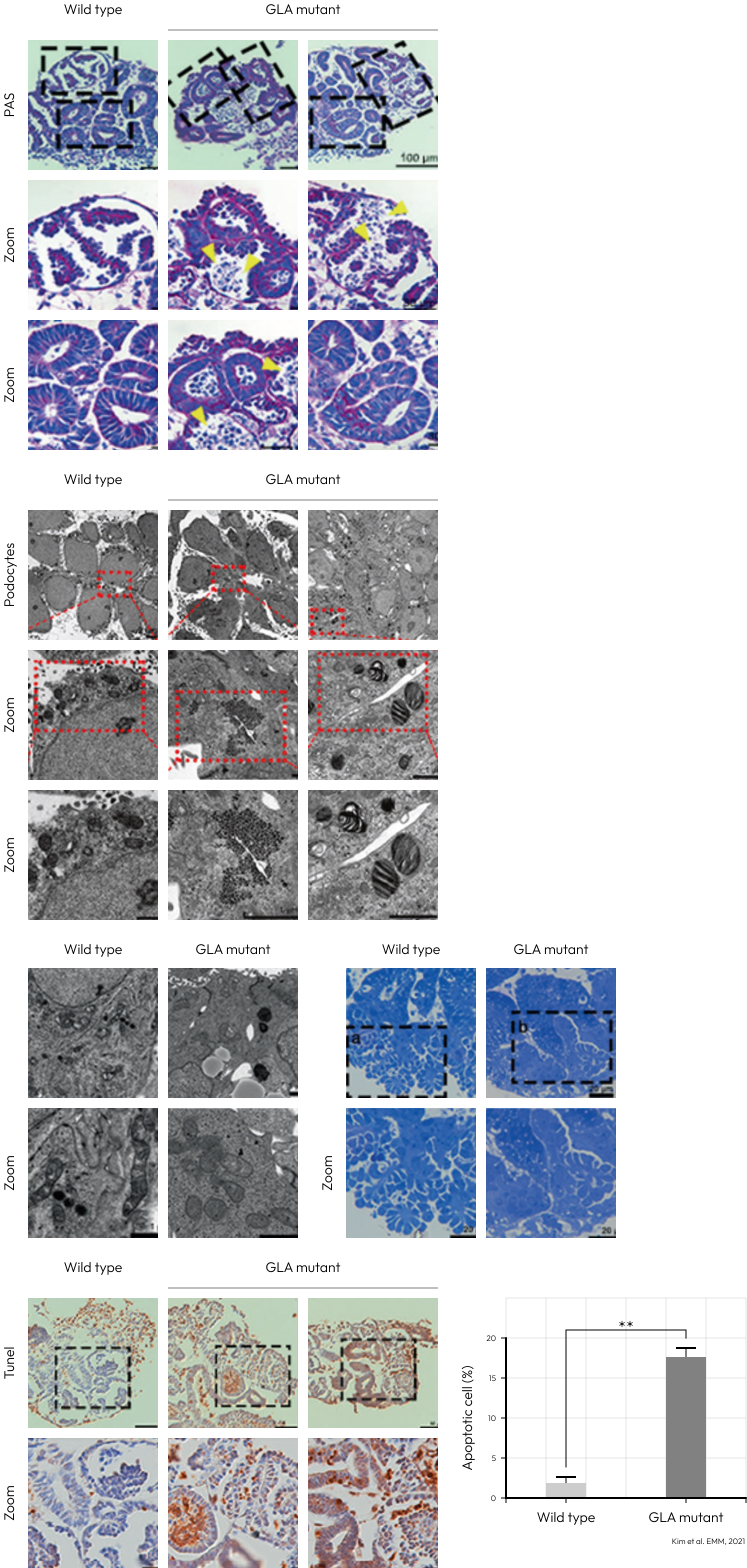
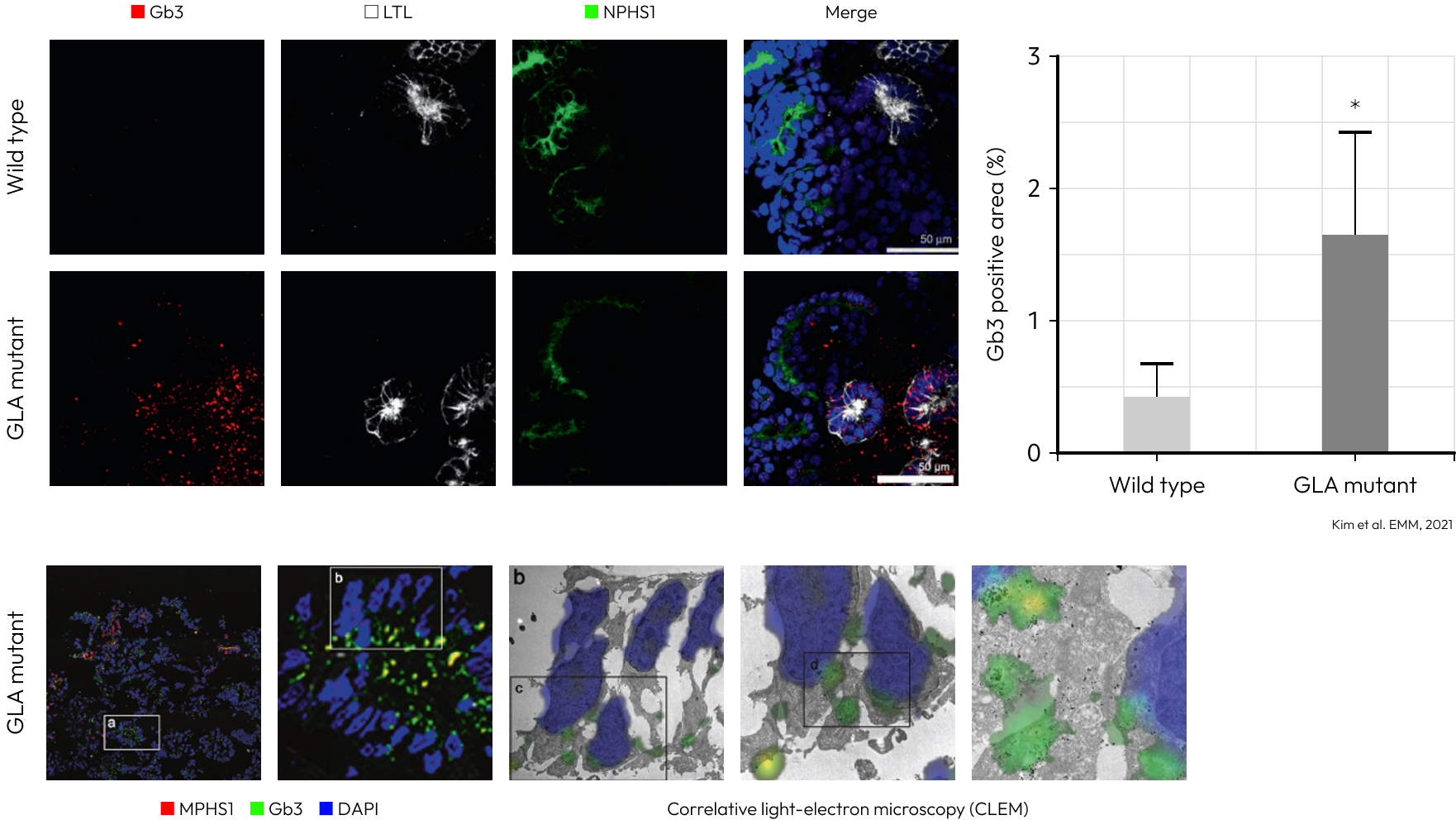
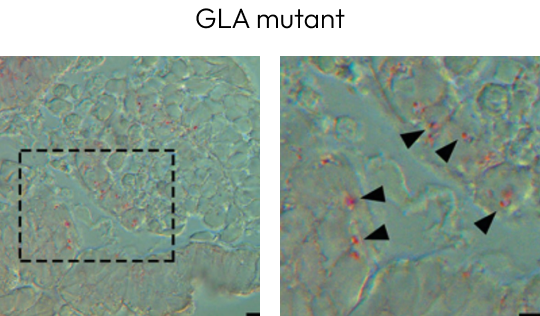
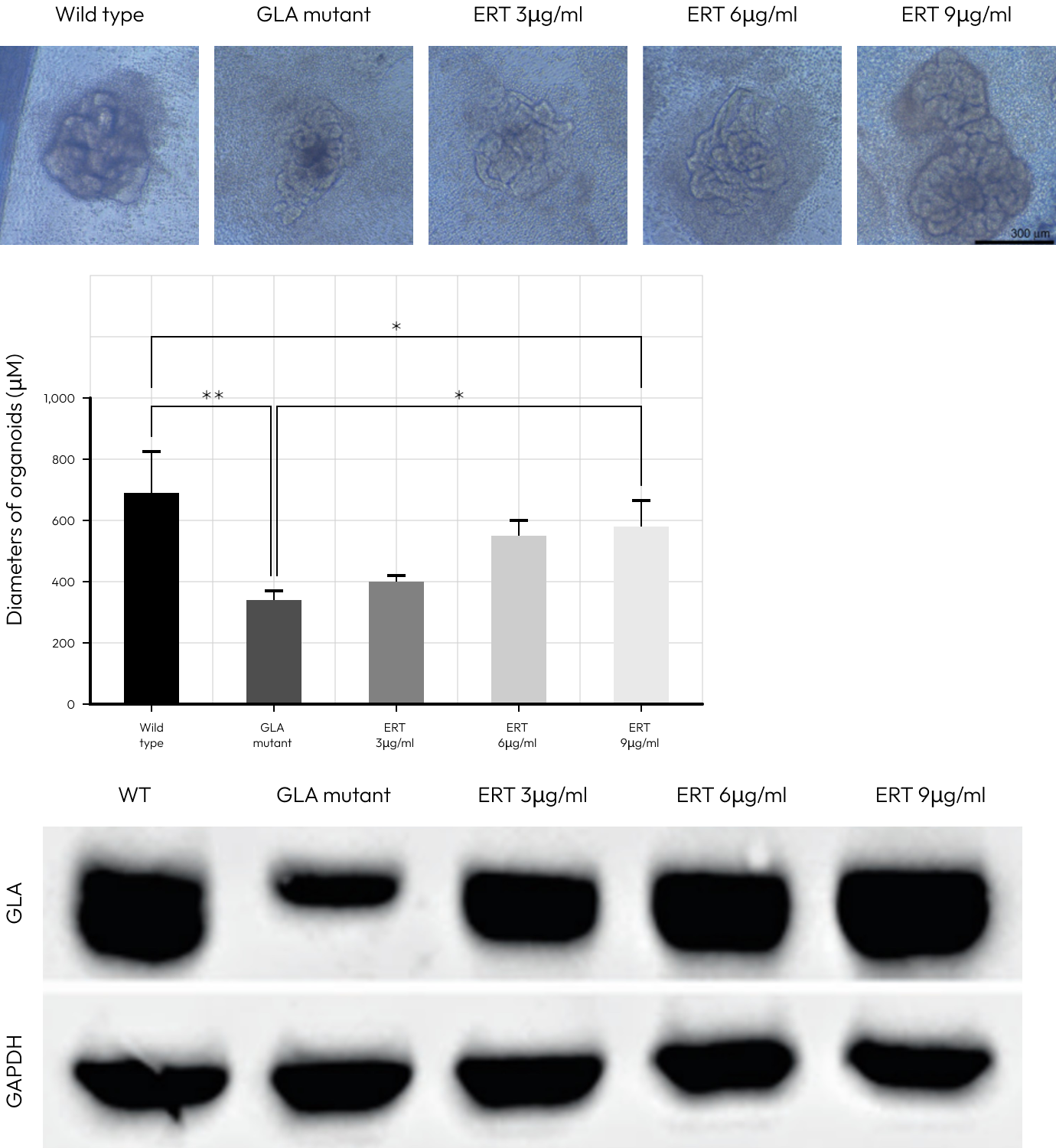
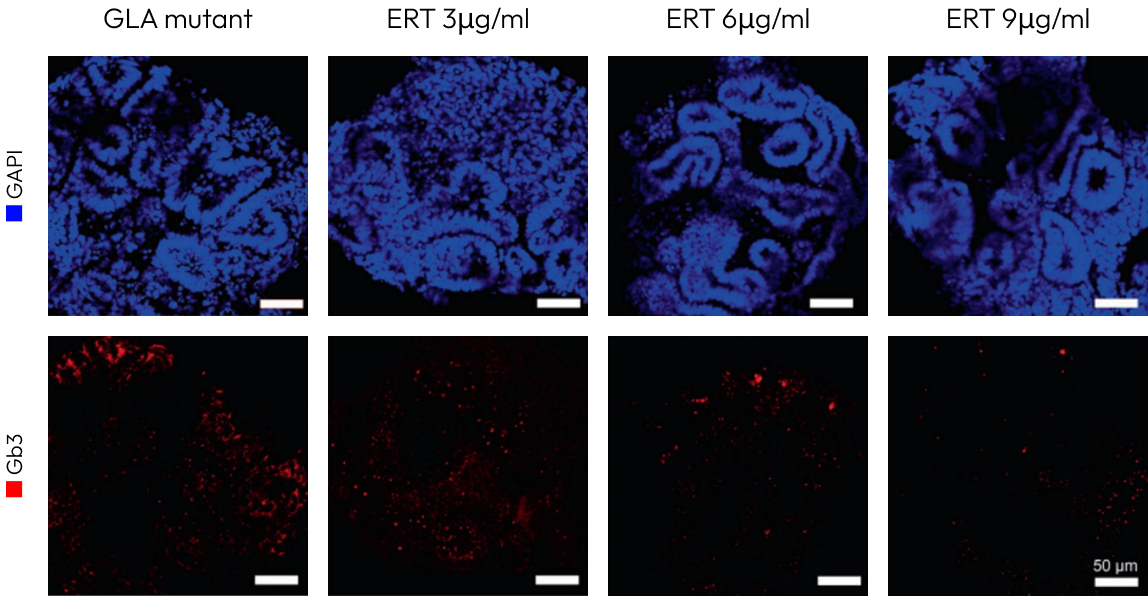
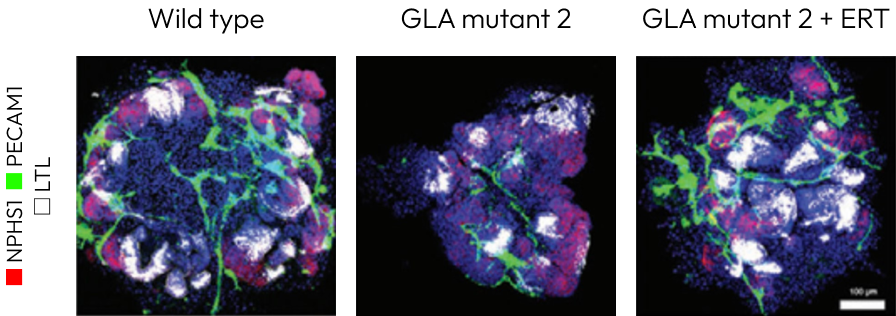
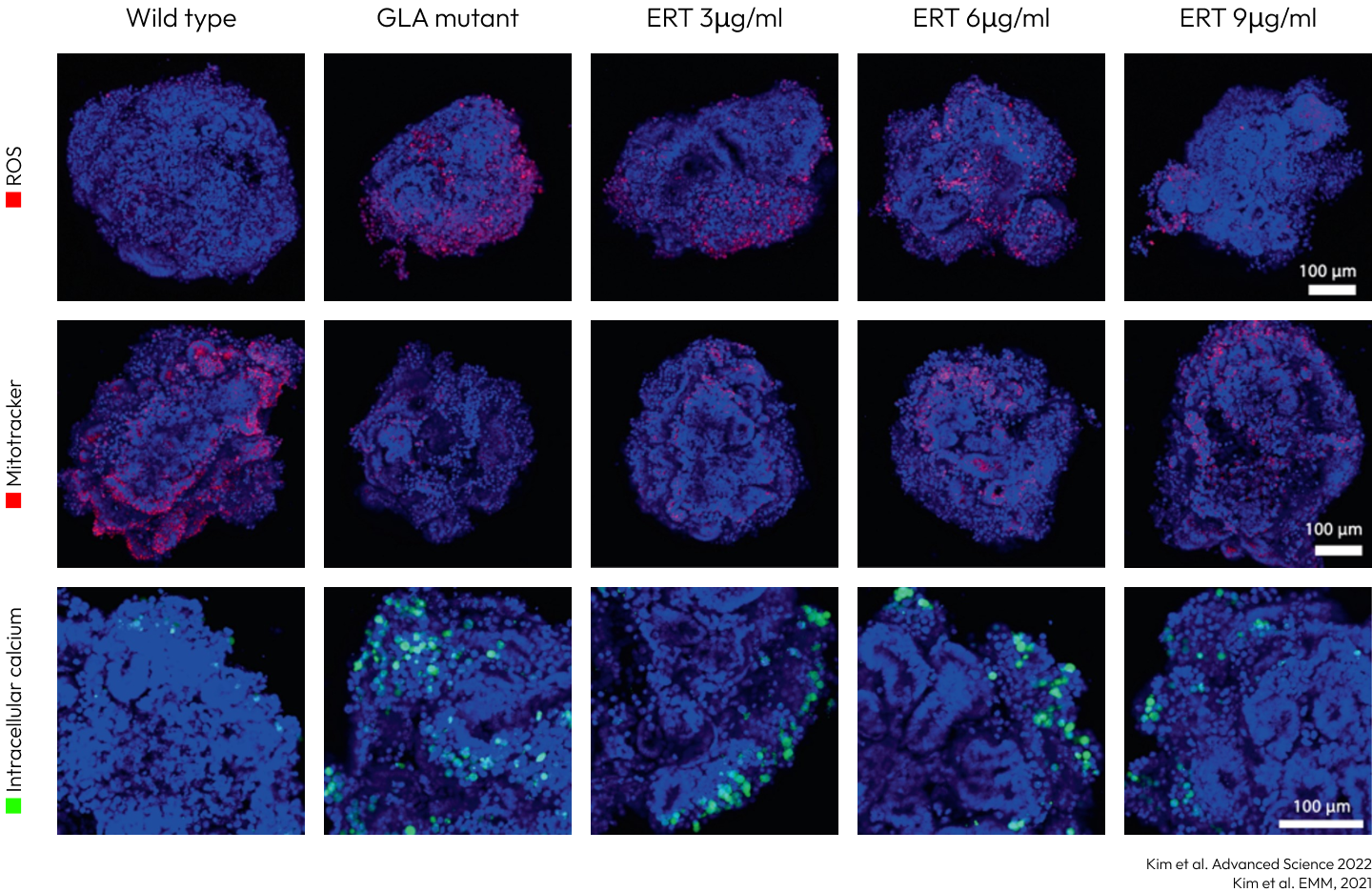
Lambda Biologics GmbH
Deutscher Platz 5 c, 04103, Leipzig, Germany
info@lambdabiologics.com